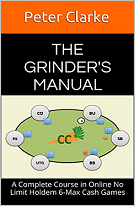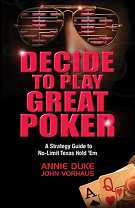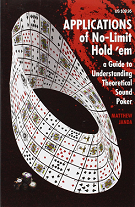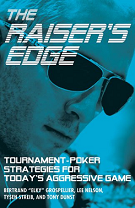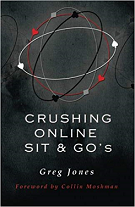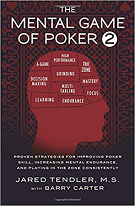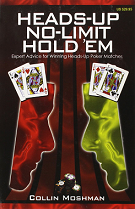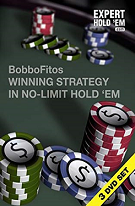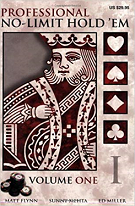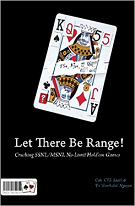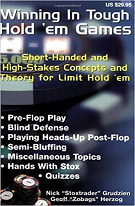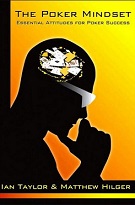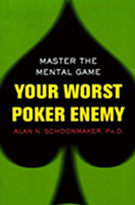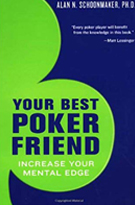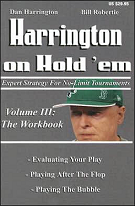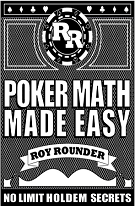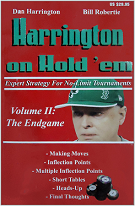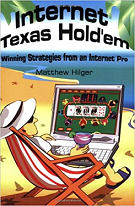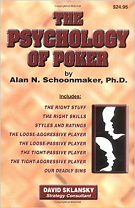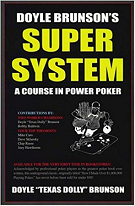Best Poker Books
Different poker books help players improve their skills. There are many disciplines in this game, each with its own rules and strategies. Educational materials talk about strategies, bluffing tactics, principles of reading opponents, stack management and other aspects that can help you become a more successful grinder.
Additionally, a good poker book can help players develop the right mindset. They can teach discipline, emotional control, bankroll management principles, and other important aspects of the game.
Finally, this literature may also be of interest to those interested in poker as a sport or cultural phenomenon. There are many interesting publications about the history of poker, professional gamblers, and tournaments.
Our library on Cardmates is a collection of materials that cover various aspects of the game. Here you can find guides on strategy, tactics, psychology of poker and its mathematics.
Poker Books: Online Library on Cardmates
Thorough study of all aspects of a discipline is the path to success. Some would say that the poker book is outdated as a learning resource, but that is far from the case. This method is always relevant.
Many also have a lack of trust in the content creator. Who is the author of the guide? Who penned the practical advice, hand patterns, and strategies for playing flawlessly? Can these people be trusted?
We can answer: they are mostly world stars who have earned millions of dollars on poker. And what is more important, they were inexperienced "dummies" in the past. Therefore, they know exactly how to properly present educational material so that even a person with a very low skill level quickly masters everything and improves the results. Pros are happy to reveal the secrets of their brilliant achievements, share table experience and personal views on the game.
On Cardmates you can find:
- Poker books for beginners.
- Texas Hold'em (NL/FL) literature.
- Publications about other disciplines (Omaha, Stud and others).
- Guides about strategies for playing online and at live events.
- Materials that reveal the mathematical and psychological side of poker.
- Manuals for MTT and cash players.
How to Choose the Best Poker Books
You can choose the right manual, considering the following factors:
Game level
Choose those that suit your level. Just as it's unproductive for an advanced grinder to pore over rudimentary concepts, a beginner wading into complex, high-level strategies can find themselves overwhelmed and confused. Recognizing and aligning with your current game level ensures a more effective learning curve.
Only with a solid base can you effectively progress to more intricate strategies and nuanced gameplays characteristic of intermediate and advanced levels.
Target and goal
Determine what aspects of the game you need to improve. If you want to work on tactics, choose poker strategy books; if you want to develop your moral skills and discipline, choose psychological literature.
Author and reputation
Choose tutorials from well-known authors who have poker experience and provide proven strategies and tips. The writer's background can greatly influence the quality and relevance of the content. An ideal poker book author would not only have extensive experience playing the game but also the ability to articulate complex strategies in a manner that's accessible to readers. They often have notable achievements, such as significant tournament wins or a recognized reputation in the community.
Reviews and comments
In today's digital age, reviews are a pivotal tool for consumers. They provide a window into the experiences of others who have already engaged with a product, service, or in this case, a manual.
Reviews, especially those from regular users or readers, often contain insights not evident in promotional materials or descriptions. They can highlight the strengths and weaknesses, the reliability of the content, and even its applicability in real-life situations.
Price and quality
In the diverse world of literature, the price tag on a manual isn't always indicative of its quality or relevance. While premium prices might sometimes suggest a comprehensive guide or a celebrity authorship, valuable insights and effective strategies can be found in more affordable titles.

It's essential to remember that the best poker book for you isn't necessarily the most expensive one on the shelf. The key is to strike a balance between cost and content, ensuring that the one you choose not only fits within your budget but also addresses your specific needs and areas of interest in the game.
Considering these factors will help you choose the best option that suits your needs and will help you improve your skills.
Our Recommendations for a Start
If you are new to poker and want to start your training, it is recommended that you start with guides that cover the basics. Here are some poker books that may be useful for new players:
- Poker Theory by David Sklansky is a classic almanac that will help you understand the basic concepts and principles.
- Holdem for Beginners by Ed Miller. Contains the basics of the most popular playing format and analyzes its fundamental concepts.
- The Little Green Book by Phil Gordon is a great choice for beginners, covering main rules, probabilities and math, table positions, reading opponents, and bankroll management tips.
Choose materials that best suit your needs and level of play. Do not forget that reading is just one way to learn, and in order to become a good player, you need to practice and gain experience. While a good poker book is an invaluable resource, there's a myriad of other educational materials available for those eager to learn.
Various Types of Poker Literature
The fascinating world of poker combines numerous elements, including strategy, psychology, and mathematics. To become proficient in the game, it's essential to study these aspects diligently.
Let's dive into this full-scale guide that will help you answer the most important question: “What books should I read to learn poker?”.

These are the classics, the cornerstone of any aspiring poker player's education. Just as a strong building requires a sturdy foundation, mastering the game demands a solid understanding of its foundational concepts. The foundational base in poker literature refers to those classic texts, time-tested strategies, and fundamental principles that have shaped generations of players.
- "The Theory of Poker" by David Sklansky
An absolute must-read of all tournament poker books. It offers a foundational understanding of the core concepts of the game.
- "Super System" by Doyle Brunson
Often called the "Bible of Poker," this is a seminal work that provides strategies for a variety of games.

While many casual gamblers might emphasize the importance of a good bluff or reading an opponent's tells, seasoned professionals know that a deep understanding of mathematics and probabilities can offer a substantial edge at the table.
A quality poker maths book doesn't merely list formulae or charts; it elucidates the principles in a manner that's applicable to actual gameplay. Such a manual provides readers with tools to intuitively gauge situations, make predictions, and adjust strategies based on the numbers.
- "The Mathematics of Poker" by Bill Chen and Jerrod Ankenman
A deep dive into the quantitative aspects of the game.
- "Poker Workbook: Hand Reading For Live Players Vol 1" by James Sweeney
Practice-based learning to improve the mathematical side of your decisions.

The heart of poker beats to the rhythm of strategy and advanced tactics, turning the tables in favor of those who can outthink and outmaneuver their opponents.
A thorough understanding of strategy and advanced tactics elevates a grinder from merely participating to mastering it. These strategic nuances transform the game into a mental chess match, where foresight, prediction, and manipulation reign supreme.
- "Applications of No-Limit Hold'em" by Matthew Janda
One of the most popular cash game poker books covering advanced strategies for NLH.
- "Mastering Small Stakes No-Limit Hold'em" by Jonathan Little
Focusing on the nuances of small stakes play, this one is great for those climbing the ranks.

In the realm of poker, where everyone has access to the same set of cards and a similar range of potential strategies, the psychological dimension offers a profound edge. It's not merely about playing the cards on the table, but also the individuals holding them.
- "The Mental Game of Poker" by Jared Tendler and Barry Carter
One of the best poker books that addresses the psychological aspect of poker, helping players overcome mental barriers.
- "Reading Poker Tells" by Zachary Elwood
A guide on deciphering opponents' behaviors and habits at the table.

While the classics provide foundational knowledge, poker strategies evolve as players discover new tactics and tools. It's paramount to stay updated with the latest information and discussions in the community. Remember, becoming a great poker player is a journey. It requires a mix of foundational understanding, continuous learning, and practical experience. Combine all available resources, read new poker books, stay updated, and always be ready to adapt to the ever-evolving game of poker.
Final Thoughts
If someone tells you that learning through poker books is a waste of time and it would be more useful to watch streams on Twitch, run from this person straight to our online library.
The authors of the materials/guides/texts that we offer have achieved brilliant success, having experienced the bitterness of failure, and have shown remarkable intuition and self-control at the tables, so their words can be trusted.
The manuals and manuscripts in our collection contain a lot of universal knowledge that will be especially useful for beginning players.
We recommend checking our poker library at least once a month for new content. Learn the game, grow and read the best poker books on Cardmates.
FAQ
🎯 Are poker books worth reading?
Given the rapid digitization of almost every field, many wonder if traditional channels like guides still hold value in niches like poker. The landscape has dramatically evolved over the years with the advent of online platforms, videos, forums, and software tools. But poker books are undoubtedly worth reading, especially for those looking for structured, in-depth learning. They provide foundational knowledge that's timeless. By combining the depth and structure of manuals with the dynamic, real-time insights of digital platforms, budding poker players can equip themselves with a well-rounded skill set.
💎 What is the poker Bible?
When it comes to poker literature, few titles are as universally recognized or as influential as Doyle Brunson's "Super System". Often dubbed the "Poker Bible", this groundbreaking manuscript has left an indelible mark on the world of poker. At the time of publication, it was one of the most comprehensive strategy guides available to the general public. It covered several variations of the game, including Texas Hold'em, Seven-Card Stud, Lowball, Razz, and others.
The System introduced and elaborated on several strategies that were revolutionary at the time. For instance, Brunson advocated for a more aggressive approach to NLTH, which contrasted with the then-prevalent conservative style of play. While newer publications and strategies have emerged since "Super System" was first published, its status as the "Poker Bible" remains uncontested. It stands as a testament to Doyle Brunson's influence and the timeless nature of genuine poker wisdom.
💡 How do you master poker books?
With the vast number of poker manuals available, it can be challenging to assimilate and use the information effectively. Here's some advice on mastering them to elevate your game:
- Starting with a tutorial that matches your proficiency ensures a more effective learning process.
- Don’t just passively read. Highlight key points, make notes in the margins, and jot down your insights. This ensures retention and easy reference later.
- Maintain a poker journal to track your progress. Note down hands, decisions, outcomes, and reflections. Over time, this will help you recognize patterns, mistakes, and areas for improvement.
In essence, mastering the game through literature requires a structured approach: choose wisely, engage deeply, practice diligently, and refine continuously. Over time, the insights you gain from these manuals, combined with practical experience, will significantly elevate your poker prowess.
